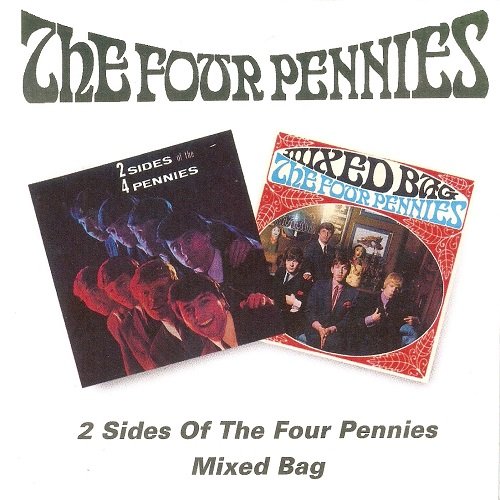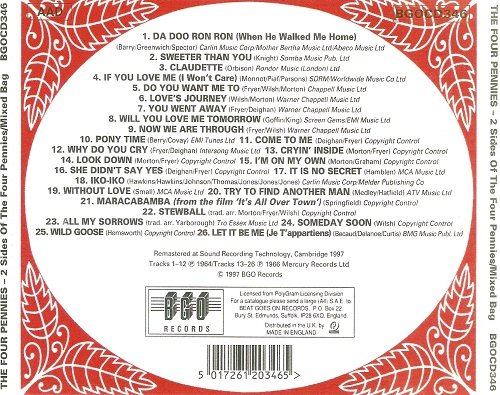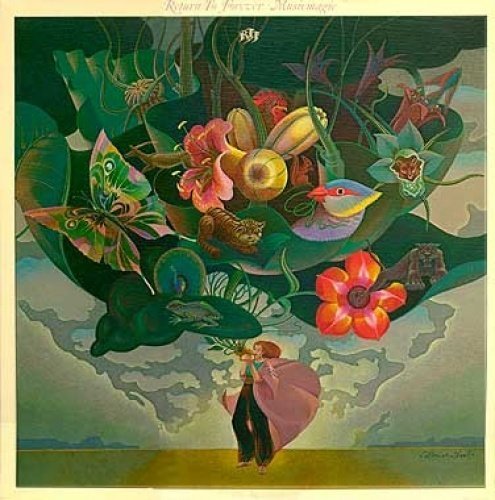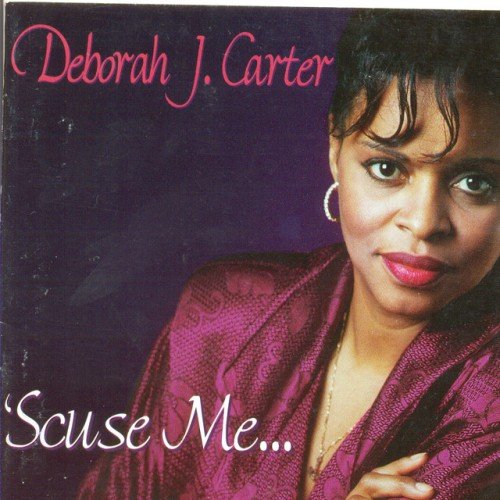Four Pennies - 2 Sides Of The Four Pennies / Mixed Bag (Remastered) (1964-66/1997)

Artist: Four Pennies
Title: 2 Sides Of The Four Pennies / Mixed Bag
Year Of Release: 1964-66/1997
Label: BGO Records
Genre: Beat-Rock, Brill Building Pop
Quality: Flac (image, .cue, log)
Total Time: 01:10:07
Total Size: 423 Mb (scans)
WebSite: Album Preview
Title: 2 Sides Of The Four Pennies / Mixed Bag
Year Of Release: 1964-66/1997
Label: BGO Records
Genre: Beat-Rock, Brill Building Pop
Quality: Flac (image, .cue, log)
Total Time: 01:10:07
Total Size: 423 Mb (scans)
WebSite: Album Preview

Tracklist:
01. Da Doo Ron Ron (When He Walked Me Home)
02. Sweeter Than You
03. Claudette
04. If You Love Me (I Won't Care)
05. Do You Want Me To
06. Love's Journey
07. You Went Away
08. Will You Love Me Tomorrow
09. Now We Are Through
10. Pony Time
11. Come To Me
12. Why Do You Cry
13. Cryin' Inside
14. Look Down
15. I'm On My Own
16. She Didn't Say Yes
17. It Is No Secret
18. Iko-Iko
19. Without Love
20. Try To Find Another Man
21. Maracabamba
22. Stewball
23. All My Sorrows
24. Someday Soon
25. Wild Goose
26. Let It Be Me (Je T'apparties)
Line-up::
Lionel Morton (vocalist/rhythm guitarist)
Fritz Fryer (lead guitarist)
Alan Buck (drummer)
Mike Wilsh (bassist/keyboardist/backing vocalist)
Late 1965 to early 1966, Fryer left the band and was replaced by David Graham (guitarist). Graham left when Fryer returned to the line-up. Ray Monk substituted on rare occasions.
The Four Pennies started out as the Lionel Morton Four, taking their name from their singer, who had served as a choir boy in a cathedral in his hometown of Blackburn, Lancashire, England, during his youth. The band -- not to be confused with the stateside recording artists of the same name -- also included Stoke-on-Trent native Mike Wilsh on piano, Oldham's Fritz Fryer on lead guitar, and Alan Buck of Brierfield on drums. Morton, in addition to singing, played the rhythm guitar. Buck, before coming to the group, had belonged to groups led by Joe Brown and Johnny Kidd. The band found their greatest success with ballads like "Juliet," which knocked the Searchers from the top of the charts in the spring of 1964. The song was originally labeled as the B-side of the group's second single, but soon was given "A" status when it started attracting attention over its flip side, "Tell Me Girl." At this point, the band had already charted with their debut single, "Do You Want Me To," but failed to make any waves with their music until "Juliet" appeared on the scene. The band's third single, a three-hankie ballad called "I Found Out the Hard Way," wasn't as successful as "Juliet," but it did climb nicely into the Top 20 in Great Britain. The Four Pennies charted twice more with "Until It's Time for You to Go," a Buffy Sainte-Marie number, and "Black Girl" from the great bluesman Leadbelly. With their original lineup, the Four Pennies put out one more single, "No Sad Songs for Me." The group fell apart in the fall of 1966. Morton, whose wife was British actress Julia Foster, first tried to go solo before switching gears and moving into television. Buck continued to work in show business, holding a variety of jobs that included production work at Radio Luxembourg. Fryer subsequently established the group Fritz, Mike & Mo, then worked as a record producer for such groups as Clannad, Horslips, Motörhead, and Stackridge, among others. Wilsh still operates a band under the Four Pennies name.




![Ex Novo Ensemble - OSVALDO COLUCCINO: Emblema (2018) [Hi-Res] Ex Novo Ensemble - OSVALDO COLUCCINO: Emblema (2018) [Hi-Res]](https://img.israbox.com/img/2026-02/22/ot6pocjri3hisq06iz4768yl5.jpg)

![Joe Pass - Virtuoso (1974) [2025 DSD256] Joe Pass - Virtuoso (1974) [2025 DSD256]](https://www.dibpic.com/uploads/posts/2026-02/1771609997_ff.jpg)

